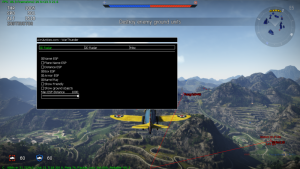
Medieval 2 Total War Spisok Yunitov Na Anglijskom
Nov 13, 2006 - For Medieval II: Total War on the PC, GameFAQs has 128 cheat codes and secrets. 1 Inch, 2 Inch & 4 Inches. Radium ( it will Glow in dark Light up to 6-8 Hour non stop. Application Area. Kak sdelatj stoyachij vorotnik snezhnoj korolevi. All type staircase of Home, school, office.
A group of English knights attacking French dismounted feudal knights. Similar to previous titles of the Total War series, the game consists of two modes of play: and campaign. Battles can be played in multiplayer, in user-defined scenarios, or in historical scenarios which simulate real battles such as the or the.
Battles are also featured in the campaign. Campaign [ ] The campaign allows the player to play as a faction from the time period, and build a civilization, both economically and militarily in order to conquer other factions. Gameplay consists of controlling the faction's military, economic, and social systems in large campaign maps. During the player's turn, armies, fleets, and agents can be moved on the map. When an army engages another army, the player can choose to fight the battle personally in the battle mode, or automatically calculate the outcome. The goal of the campaign depends on which type of campaign is played. The short campaign requires the player to defeat one or two enemy factions (for example, Holy Roman Empire must defeat its historical enemies Milan and Denmark) and control at least 15 settlements.
The long campaign requires the player to control at least 45 territories and one or two significant cities, which are faction specific, such as,,. Any nation conquered in the Grand Campaign will be unlocked as a playable faction, with the exception of the Papal States, Mongols, Timurids, Aztecs (only encountered in the New World, or in the late period) and Rebels. Completing the Grand Campaign on any difficulty level unlocks all factions as playable. Settlements [ ] Each faction begins with at least one settlement and must conquer others in order to continue growing. Unlike previous Total War titles, there are two kinds of settlements, each with different advantages and disadvantages:. Castles have better defensive capabilities and have access to a larger selection of soldiers including cavalry, infantry, and missile troops most of which can only be obtained through castles, and for the most part are superior to city troops in terms of abilities, morale, and combat statistics. However, castles generate less income, cannot train as many agents as cities, and have no access to higher civilian technologies such as taverns, markets, and buildings related to law and health such as town halls, and the eastern Bimaristan.
Cities generate much larger income and are technological centres of a faction, but are more difficult to defend and only have access to troops, which are generally inferior to those trained at castles except for a select few unique units. A small number of militia troops, stationed in the city where they have been trained, can have the benefit of no upkeep cost, that cost being a great burden on the economy of a faction throughout the game. Players may convert a settlement to a different type, although larger cities may not be converted into castles. The early castle upgrades don't have a population requirement in order to be upgraded, all that is needed are florins (in-game currency).
As in other Total War games, in each settlement the faction may construct a number of buildings, each with different functions, such as training troops, upgrading weapons and armour, expanding the economy, increasing the settlement's defences or strengthening religion. A new feature of Medieval II is the ability to build guild halls. A given settlement may only have a single guild hall, although there are several different types. Abbyy finereader 12 keygen download.
The guild hall provides certain bonuses such as increased movement for troops, better weapons, or better agents; some even grant access to new units, such as the ahistorical unit of 'Sherwood Archers' available to England upon construction and subsequent upgrade of a Woodsmen's Guild. Guild halls may also be later upgraded to a 'Master Guild Hall', which may provide a larger bonus or even grant a bonus to all of the faction's settlements while still retaining a more notable bonus in the city the structure is built, and then possibly upgraded to the 'Guild Headquarters', which provides the greatest bonuses, although each guild can have only one headquarters anywhere in the world at the given time, and each faction can only construct one Master Guild Hall of each guild in their empire. It is possible, however, to capture a city with an existing Master Guild Hall of a certain type, and have two of one kind. Characters [ ] Each faction has a ruling family. Once male family members come of age at 16, they act as units that can be used to govern settlements and lead armies in battle as generals. Each character has attributes that determine his prowess in both. A character's actions can affect his attributes - for example, a general who routinely kills prisoners of war and exterminates captured settlements may see his 'dread' increase, making him frightening to foes; a general who prefers to release prisoners and occupy settlements may instead increase his 'chivalry', making his own troops braver.